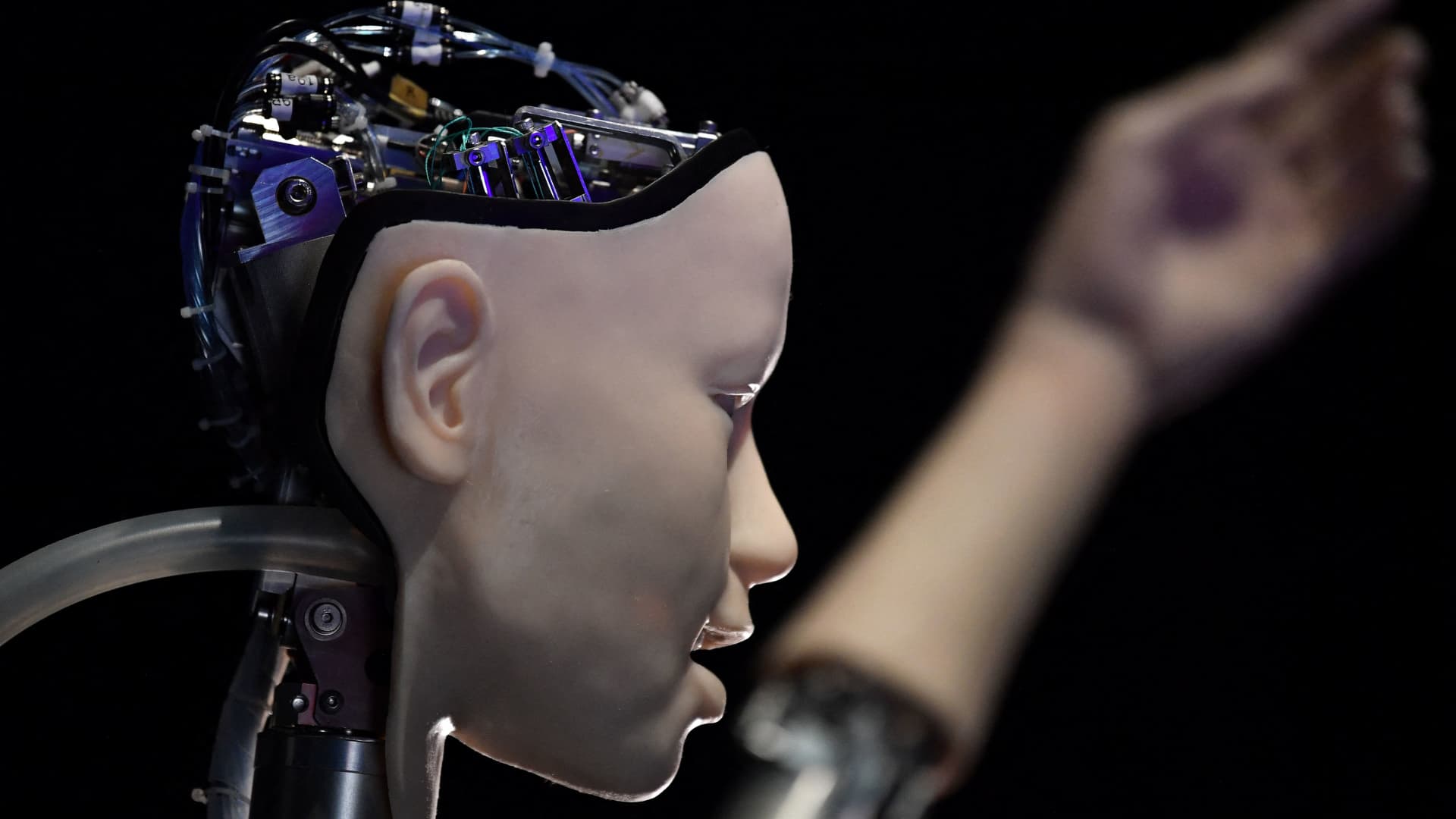Artificial intelligence can be weaponized and needs to be reined in by humans, Microsoft’s president and vice-chairman Brad Smith told CNBC in an exclusive interview.
“I think every technology ever invented [has] the potential to become both a tool and a weapon,” said Smith in the interview aired on Monday.
“We have to ensure that AI remains subject to human control. Whether it’s a government, the military or any kind of organization, that is thinking about using AI to automate, say, critical infrastructure, we need to ensure that we have humans in control, that we can slow things down or turn things off.”
Tech leaders around the world have warned about the risks of artificial intelligence after generative AI-powered chatbot ChatGPT exploded in popularity for its ability to produce humanlike responses. Generative AI is a type of artificial intelligence technology that can generate content such as text, images, code and more.
It is a tool that can help people think smarter and faster. The biggest mistake people could make is to think that this is a tool that will enable people to stop thinking.Brad Smithpresident and vice-chairman, Microsoft
The CEO of ChatGPT owner OpenAI Sam Altman, along with executives from Google’s AI arm DeepMind and Microsoft, warned in May that AI poses a human extinction risk on par with nuclear war and stressed the need to mitigate those risks.
Tesla CEO Elon Musk, Apple co-founder Steve Wozniak and several tech leaders have also urged AI labs to stop training systems to surpass GPT-4 — which is OpenAI’s latest large language model. They have also called for a six-month pause on such advanced development.
“It’s why we’ve advocated for not just companies to do the right thing, but new laws and regulations that would ensure that there are safety breaks,” Smith told CNBC’s Martin Soong on the sidelines of the Business 20 Summit in New Delhi on the weekend.
“We’ve seen the need for this elsewhere. I mean, just imagine electricity depends on circuit breakers. You put your kids on a school bus, knowing that there is an emergency brake. We’ve done this before for other technologies. Now we need to do it as well for AI,” said Smith.
AI impact on jobs
Meanwhile, the explosive growth of AI has workers worrying that their jobs could be replaced by the technology.
A Goldman Sachs report in March said generative AI could impact as many as 300 million jobs around the world. Between 25% to 50% of the workload in those occupations affected may be replaced, said the investment bank, adding that jobs that require physical labor are less likely to be significantly affected.
The Microsoft executive pointed out that AI is a tool that supplements human work, and not one that replaces jobs.
“It is a tool that can help people think smarter and faster. The biggest mistake people could make is to think that this is a tool that will enable people to stop thinking,” said Smith.
“That’s why at Microsoft we call our services co-pilots,” said Smith.
“The ability to take a Word document and turn it into a PowerPoint slide doesn’t mean you shouldn’t read your PowerPoint slides before you present them. In fact, you should go in and edit them and make them just perfect.”
IBM chairman and CEO Arvind Krishna told CNBC last week that AI will impact white-collar jobs first, but could help workers instead of replacing them.
“It’s absolutely not displacing — it’s augmenting. The more labor we got, especially if it’s not human-based at all, we can create more GDP. We should all feel better about it,” said Krishna.
